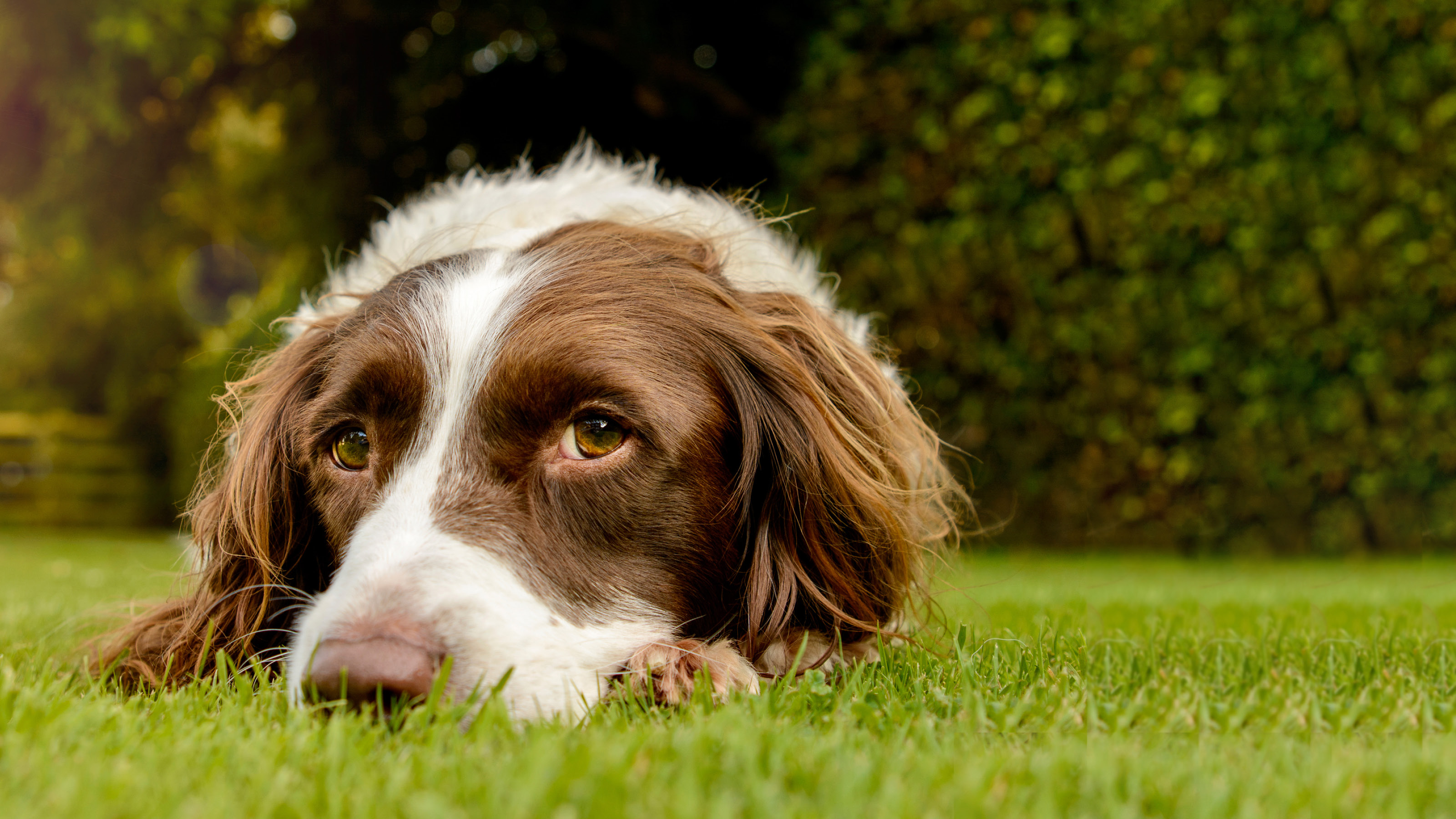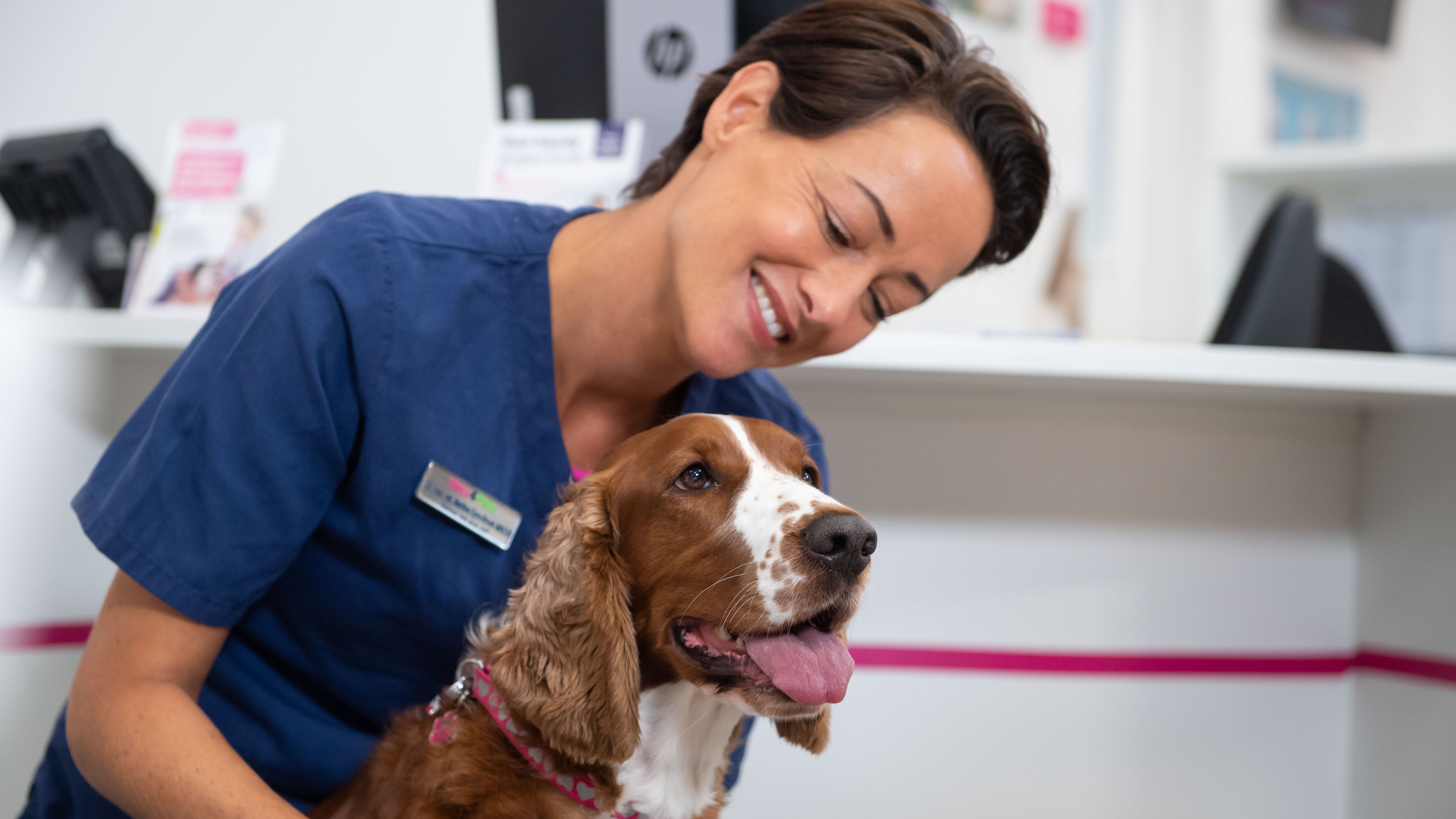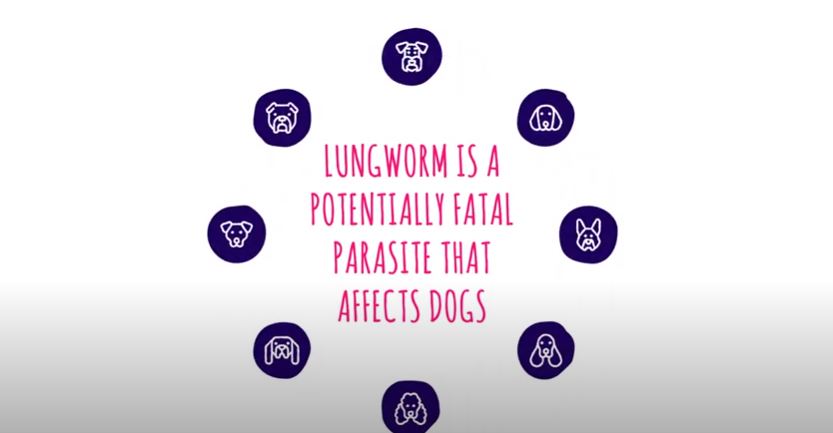
Lungworm And Your Dog
Lungworm is a nasty condition that can be fatal.
Lungworm is a parasite that can be deadly to dogs if ingested. Fortunately, there are ways to reduce your dog’s chances of catching lungworm, by following some simple but essential precautions before you head outdoors or let them play in the garden.
Lungworms use multiple animals to help complete its lifecycle, with dogs and foxes as the primary hosts, and slugs, snails and even frogs as their intermediate hosts. This guide provides dog owners with how to spot the signs of lungworm in dogs, and what you can do to protect your dog from this potentially dealy parasite.
What is lungworm?
Lungworms are short worms, only reaching 2.5cm in length as adults, which live within the chambers of the heart of our pets, and in the artery that connects the heart to the lungs. Despite their main home being in the heart, these worms are called lungworms as they cause mainly lung-related signs such as coughing.
Lungworms are passed through snails and slugs; therefore if your dog plays or consumes them in the garden or when out for a walk, they can become infected. Dogs can also come into contact with lungworms through eating grass, drinking from puddles, outdoor water bowls, or toys that have been left outside in grass.
Also known as Angiostrongylus vasorum, lungworns are reproduced by producing eggs which hatch into larvae. These larvae are coughed up from the dog’s lungs, swallowed, and passed out in your dog’s faeces. Once in the faeces, larvae are picked up by slugs and snails, and mature until they are old enough to affect dogs and foxes, and the cycle starts again.
More about lungworm
Dogs can get lungworm by eating infective lungworm larvae. These can be found in the slimy coating of slugs and snails. There are 20,000 slugs and snails in the average UK garden!
These larvae can survive for a short time off hosts such as slugs and snails, and therefore larvae can also be found on toys and in water bowls where slug or snail contamination might not be obvious.
Don’t forget, dogs do not have to eat the actual snail or slug to get infected. Although habitual slug and snail eaters are more at risk, any dog with access to slug and snail environments may come into contact with lungworm larvae.
The most common symptoms of a lungworm infection are:
- Coughing
- Changes in breathing or struggling to breathe
- Going off food
- Upset tummy with vomiting and/or diarrhoea
- Loss of weight
- Tiredness and depression
- Unexplained or excessive bruising
- Pale gums
- Bleeding
Sadly, dogs with severe lungworm infections can become very ill in fact, 9% of infected dogs will die.
If your dog is experiencing any of these symptoms you should make an appointment with your local Vets4Pets as soon as possible.
Although you can’t stop your dog being exposed to lungworms, there are lots of options for preventing a lungworm infection developing.
- Regular worming treatments. Worming treatments usually come in the form of tablets or spot-ons, and may manage a range of parasites including lungworms. The best parasite protocol for your dog will depend on you, your dog, your lifestyle and even the season, and your vet can help you decide which regime works best for you. However you choose to manage worms in your dog, make sure to speak to a vet about the best anti-parasitic on offer, as many over the counter treatments have poor efficacy.
- Picking up your dog’s faeces quickly will help prevent the spread of lungworm.
- Removing toys and bowls from the garden overnight so they are not exposed to slugs and snails.
- Changing the water in water bowls frequently.
If you think your dog might have a lungworm infection, the best thing to do is to go to your vet. They can do a full physical examination, and check your dog over to figure out if there are lungworms present.
Thankfully, there is a simple blood test for lungworm, so that your vet can assess the risk of your dog being infected. If there is a risk your dog may have lungworm, your vet will prescribe a worming treatment suitable for your pet, which should eliminate the worms.
If you're concerned about your dog's exposure to lungworm, your vet can also help you with a worm prevention plan going forward too, to make sure your dog stays protected.
Health Plans to keep your dog healthy
At Vets4Pets we offer a range of Health Plans that make essential routine treatments more affordable. You'll save money on things like annual vaccinations, flea and worm treatment and routine health check-ups.

Pet Symptom Checker
Our handy Pet Symptom Checker allows you to search your pet's symptoms and helps guide you on what to do next.

Dog Advice
Read more of our expert dog advice to keep your dog happy and healthy.

